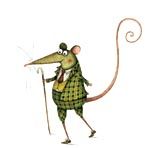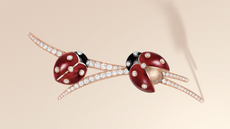Country mouse enjoys his garden
Greenfinches join Mark in his garden, to his delight


The tinkling fairy-bell calls of a flock or charm of goldfinches have become much more common in recent years. Numbers of this dazzling, gaudy bird have soared since people started putting out niger seeds on their bird tables, and they're a year-round pleasure in my garden. I have been delighted that they've been joined by a number of greenfinches, whose fortunes have been in sharp contrast.
They have seen numbers drop by a third due to a parasite called trichomonosis, which eventually causes the bird to starve. Ironically, it's the use of birdbaths and bird feeders in summer that leads to the disease being spread between the greenfinches. I've always maintained that birds shouldn't be fed beyond the winter months so that they spread out and learn to fend for themselves.
Certainly, in our garden, there are plenty of wild patches of nettles and thistles where the birds can search out natural food. When wading into one enormous patch to retrieve a cricket ball, I discovered a greengage tree laden with fruit that I didn't know existed. This is the latest bonus in moving into a new house last October and then discovering, as the months unfold, what treasures are growing in the garden.
* Subscribe to Country Life and save 40%
Sign up for the Country Life Newsletter
Exquisite houses, the beauty of Nature, and how to get the most from your life, straight to your inbox.
Country Life is unlike any other magazine: the only glossy weekly on the newsstand and the only magazine that has been guest-edited by HRH The King not once, but twice. It is a celebration of modern rural life and all its diverse joys and pleasures — that was first published in Queen Victoria's Diamond Jubilee year. Our eclectic mixture of witty and informative content — from the most up-to-date property news and commentary and a coveted glimpse inside some of the UK's best houses and gardens, to gardening, the arts and interior design, written by experts in their field — still cannot be found in print or online, anywhere else.
-
 The century-old enamelling technique used to create Van Cleef's lucky ladybird brooch — which has something in common with Country Life
The century-old enamelling technique used to create Van Cleef's lucky ladybird brooch — which has something in common with Country LifeThe technique used in the jeweller's Geneva workshop has been put to good use in its latest creation.
By Hetty Lintell Published
-
 ‘The best sleep in the sky’: What it’s like to fly in United’s Polaris cabin, approved by American icon Martha Stewart
‘The best sleep in the sky’: What it’s like to fly in United’s Polaris cabin, approved by American icon Martha StewartUnited’s Business Class cabin goes by the name Polaris and Martha Stewart is a fan. So, how does it fare?
By Rosie Paterson Published
